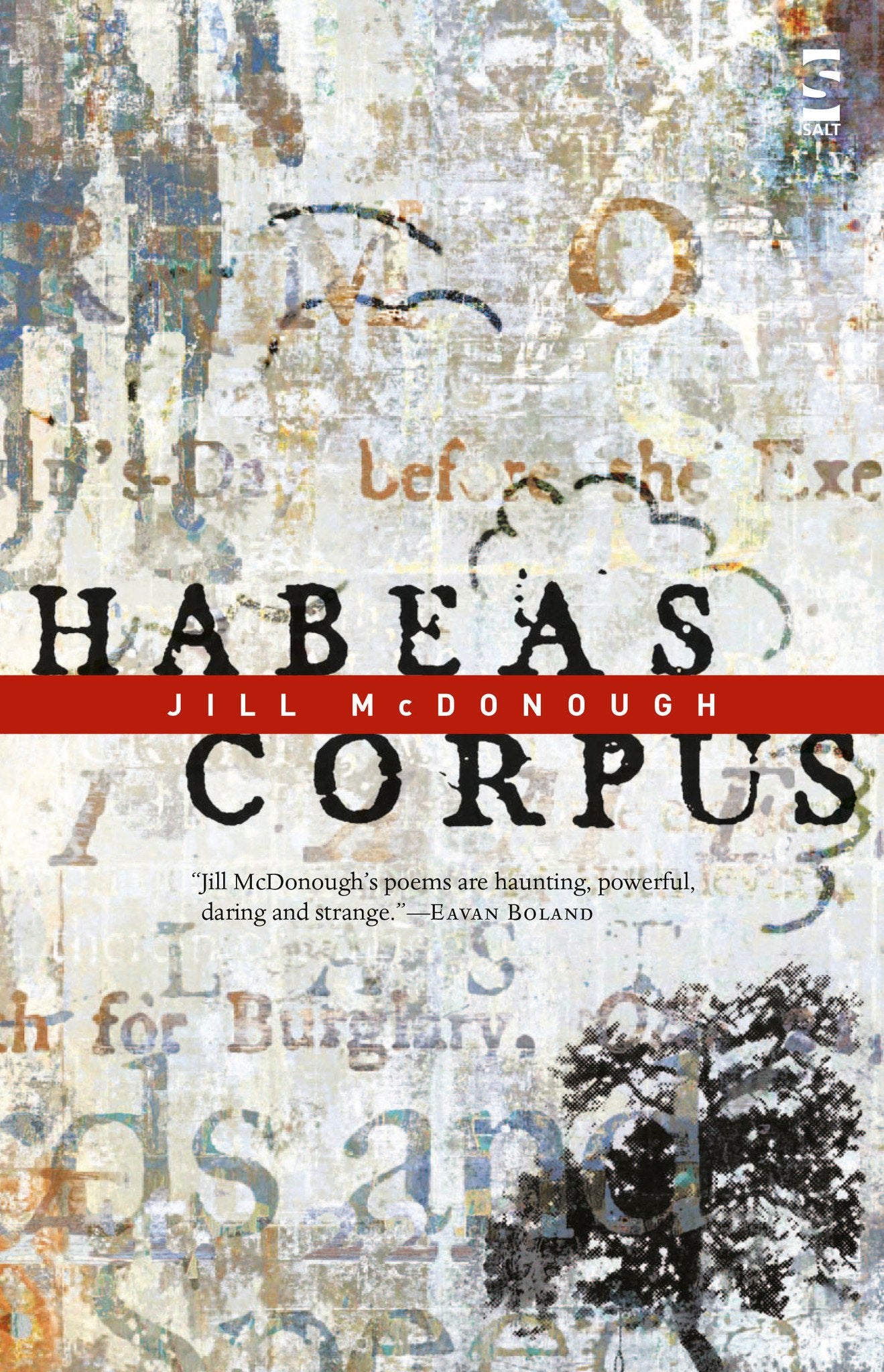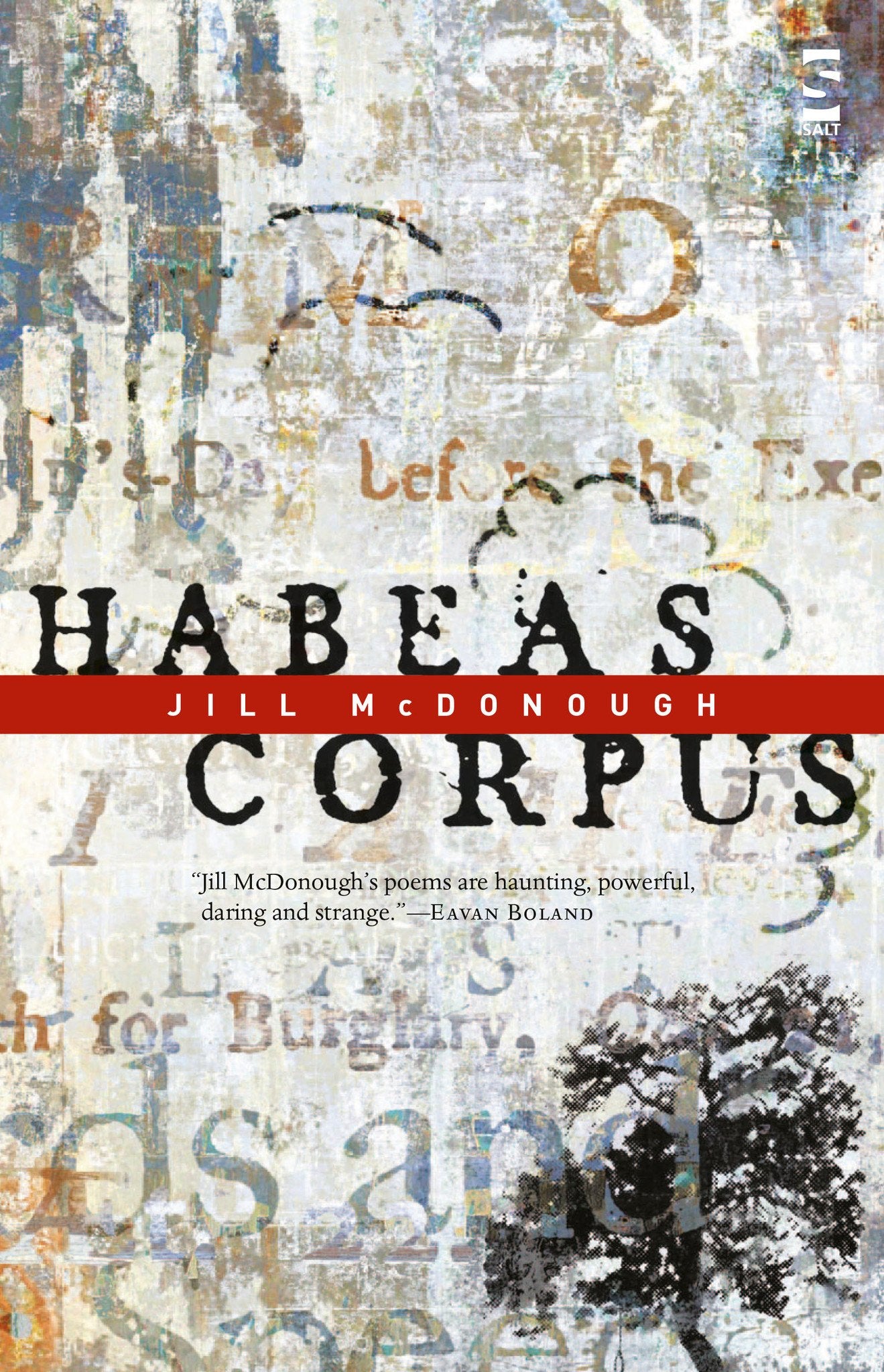Jill McDonough
Habeas Corpus
Habeas Corpus
ISBN:9781844714247
Couldn't load pickup availability
Synopsis
Sacco and Vanzetti, the Rosenbergs, and Aileen Wuornos. A witch, a pirate, a slave who poisoned her master. A serial killer, a Quaker, a case of mistaken identity. The earliest to be electrocuted, gassed, and lethally injected; the last to be publicly hanged. In her first book, Habeas Corpus, acclaimed poet Jill McDonough gives us fifty sonnets, each about a legal execution in American history. From four hundred years of documentation she conjures – and honors – a chorus of the dead. The sonnets, headed meticulously by name, date, and place, are poignant with the factual, with words and actions reported by eyewitnesses and spoken by the condemned – so limpidly framed that at moments one forgets the skill that tautens and crystallizes all this into authentic poetry:
The warehouse was dingy, cluttered with lumber:
thirteen steps, noose, black mask. No hymn, no psalm.
He spat out his gum in the chaplain’s outstretched palm.
Habeas Corpus: you have the body. With a rare control of indignation by sorrow, of subjectivity by the subject’s own truth, McDonough’s unsparing sonnets reveal the enormity that is the death penalty in America: “a ladder, a hanging tree” for Mary Dyer, “an odor he'd/described in print as peach blossoms, sickening-sweet” for Caryl Chessman, “a hood, their/target, then bang, bang, bang, three noises, quick” for Gary Gilmore, “Two needles in his arm,/blood splatters on the sheet” for Charles Brooks. Taking the words of fifty out of the nearly 20,000 men and women executed since 1608, she reflects them back to us in works of self-effacing artistry. Resurrected from their obscurity these individuals speak our secret history.
Praise for this Book
‘These poems, with their catalog of deaths and histories, build a powerful, relentless music. The music and plain-spoken craft in turn make clear that the true subject here is not death but human survival – in memory, language and suffering. This is a remarkable debut by a gifted and courageous poet.’ —Eavan Boland
‘“Habeas Corpus is easily the most compelling book I’ve read in recent memory. McDonough’s project is to speak (thus the title) for our nation’s executed, and though that may sound grim and harrowing (and it is), it is a sonnet cycle driven not by sensationalism or sentimentality, but by love. Because this book is of deep human consequence and beauty, it seems almost trivial to say that it helps restore honor and relevance to the sonnet form, and to lyric poetry in general, though I think it does. I found myself weeping halfway through . . . and after I reached the last of the notes, I began at the beginning again.”’ —Michael White, author of The Island, Palma Cathedral, and Re-entry
‘Jill McDonough has mastered two things in this collection: the sonnet form, and a particularly ugly facet of American history. The combination of these two unlike things--the elegant, precise, humane poetic voice, set against the bare facts of the U.S.'s deplorable and continuing execution of its convicted criminals, innocent and guilty alike--affects us more than either could alone. The power of Habeas Corpus, as a work of literature and as a political act, is both cumulative and chastening’ —Wendy Lesser
Reviews of this Book
‘Jill McDonough’s poems are lyrical founts of energy and insight and humor and empathy. She’s a daring poet, formally sophisticated yet pushing the boundaries of form at every turn. In the four or five years I’ve known her poems, their subjects have dazzled me: a bumptious American girl teaching in Japan and loving the language, a gorgeous exotic dancer in a local club, really tender love poems, really tough (what else?) Catallus translations, and a long sonnet sequence about murderers who’ve been executed throughout American history. I want to follow the trajectory of McDonough’s work, its twists and turns—it will never fail to be interesting’ —Gail Mazur author of “They Can’t Take That Away from Me”
Product Details
Extent: 76pp
Format: Paperback
Publication Date: 15-Jun-09
Publication Status: Active
Series: Salt Modern Poets
Subject: Poetry by individual poets
Trim Size: 216 x 140mm


